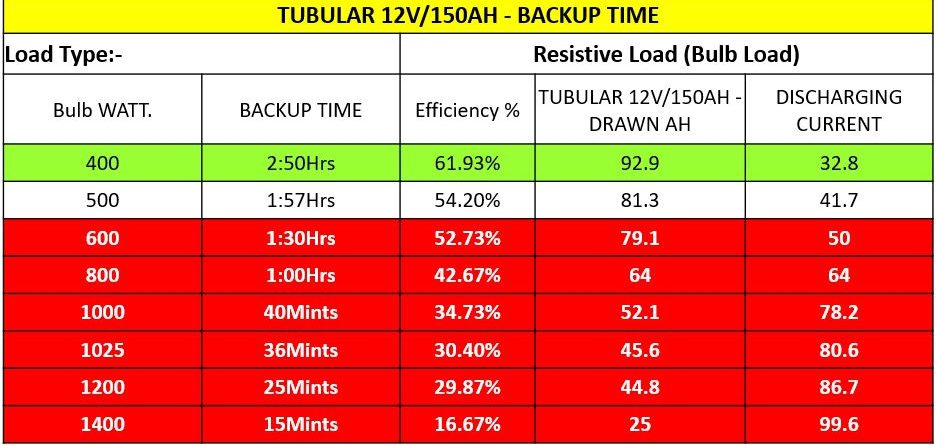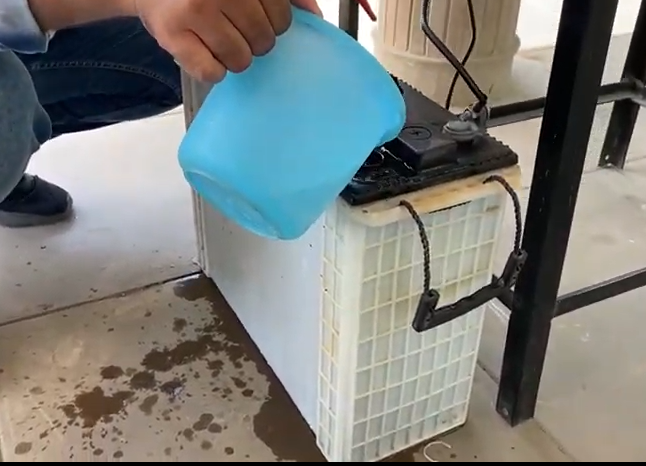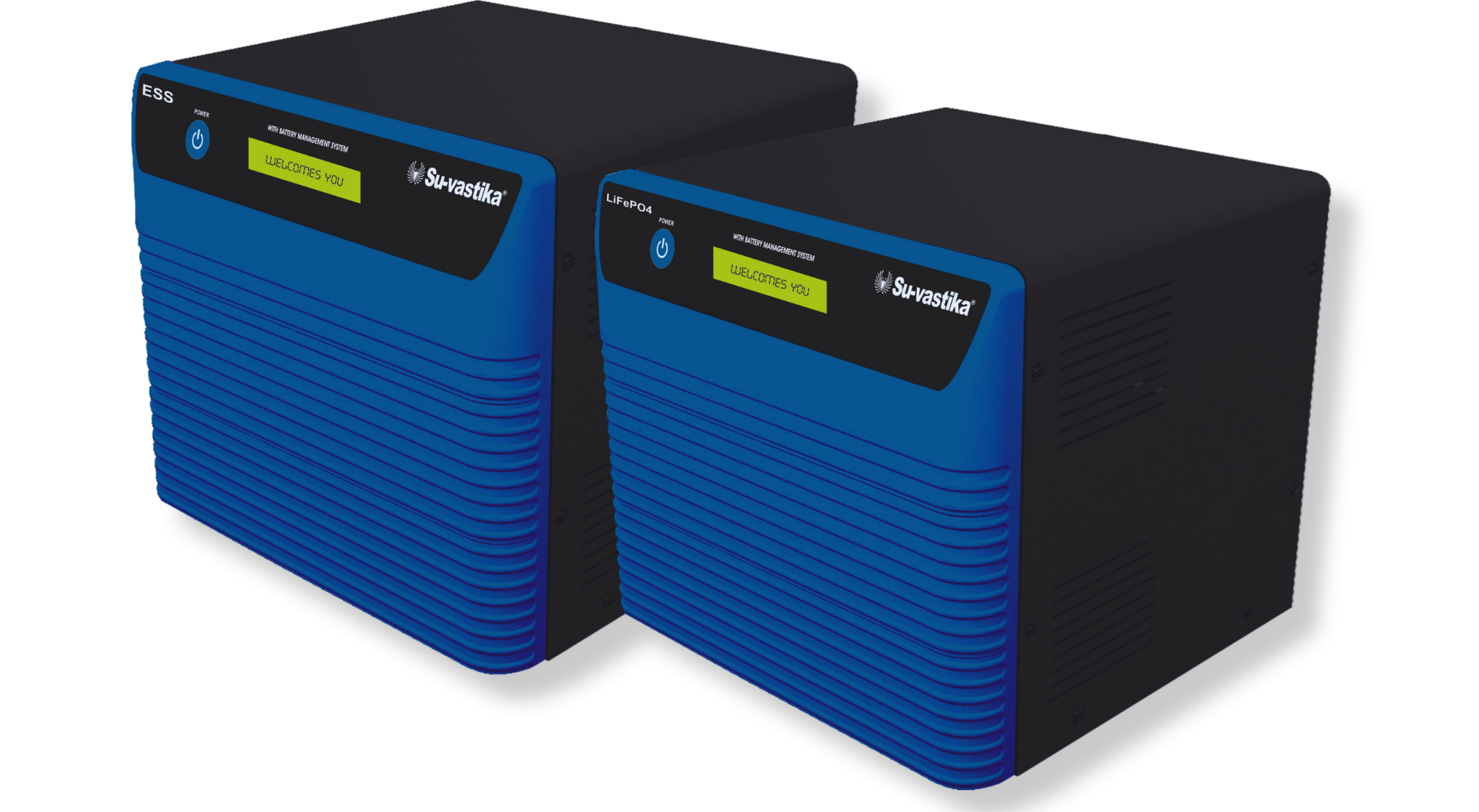Lithium Battery compared to Tubular battery.
Compared to Tubular batteries, lithium batteries are the topic to discuss in this blog. Lithium and tubular batteries are both types of power storage Batteries. One has Lead Acid chemistry, and the other has Lithium and other chemicals that make batteries, but they have different advantages and disadvantages.
Lithium batteries have a higher energy density than tubular batteries, especially since they are C1-rating. Tubular Lead Acid battery has a lower density and are C20 capacity Batteries which make a clear distinction that Lead Acid Batteries are made for smaller discharge application or running smaller loads. Lithium battery is designed for higher discharge loads means to run higher loads.https://suvastika.com/lithium-battery-option-in-inverter-ups-solar-pcu/
Tubular batteries seem less expensive when we talk of price without comparing the advantages and disadvantages, but they are very expensive compared to Lithium batteries. We will discuss the same in this article. So let us assume we have to run the load of 500 Watt on the 12V Inverter/UPS, and the 150 Ah Lithium battery will give the backup time on Inverter/UPS. On Tubular 150AH battery, we will get approximately 2 hours of backup. And for Lithium battery, we need a maximum 600WH battery which will be close to 50 Ah battery in Lithium. Now we can compare the price of a Lithium battery 50 AH with the 12V 150 Ah pricing in the market.
The Tubular battery is C20, and Lithium is C1, creating a major difference in backup time.
If we compare the pricing in India of these two batteries, we realize the price is almost similar. Still, the advantages we will get from Lithium batteries will not be comparable to the Tubular batteries.

150Ah 12V battery backup on different loads
The Life of the Lithium battery compared to the Tubular battery: The Life of the Tubular Lead Acid battery is 1/4 th of the Lithium Battery as the Lithium battery can give a 3000-cycle life, whereas the Tubular battery has a maximum of 500 cycles that too if we refill the battery water in time and the right distilled water.
The size of the Tubular Vs Size of Lithium battery: The six is also a major criterion to compare as the lithium battery of 50 Ah will be so small that it can be kept on the Inverter/UPS.






The weight of the Tubular Vs Lithium battery The 150 AH tubular battery weighs 58 Kg minimum, whereas the Lithium battery is just 7.5 Kg of 50 Ah lithium battery.https://suvastika.com/what-is-lithium-inverter-ups/#:~:text=A%20lithium%20inverter%2FUPS%20is%20an%20inverter%2FUPS%2FBESS%20specifically%20designed,Higher%20energy%20density%20Faster%20charging%20Weight%20and%20space-saving
The charging time of Tubular Vs the charging time of Lithium battery: This is another factor which makes them differentiate completely as the Lithium batter can be charged in 2 to 3 hours whereas the Tubular battery takes 12 to 15 hours to charge.
The cost of charging Tubular Vs Lithium battery: The Lithium battery is charged in two steps and, once charged, doesn’t need trickle charging. Whereas the Lithium Lead Acid battery will be charged in 4 to 6 stages and which consumes more power and at. Lastly, the Trickle charging maintains the Tubular battery gravity intact, and the tubular battery’s self-discharge is much higher than the Lithium battery. So the Tubular battery gets more electricity for charging, which is a big waste of power and an extra financial burden on the user.
Lithium has built-in BMS, so it will minutely control all the parameters in Lithium.
The construction of a Tubular battery is unregulated compared to the construction of a Lithium battery cell. No two batteries can match in backup time in the case of Tubular Lead Acid batteries as the construction of each cell can’t be matched, whereas the Lithium is controlled. All the cells are sorted before the battery is made, and equal cell voltage cells are separated by measuring the IR values so that the battery does not have a mismatch in the cell’s IR value.
Maintenance of Tubular Vs Lithium battery: The maintenance of Tubular batteries for refilling battery water is a big headache. The timing of refilling cant be measured beforehand, so generally, users forget to refill the water in time, and after refilling the Tubular battery, another major challenge is spillage which could destroy the floor, which happens in most households and offices.
The Abuse of Lithium Vs Tubular battery: The Lithium battery has a built BMS called Battery Management System, which takes care of charging and discharging over voltage and under voltage of the battery pack. Hence, no abuse is possible as the BMS very well protects it. Whereas there is no such protection in the Tubular Lead Acid battery, all such conditions can happen and shorten the Tubular battery’s Life.
The explosion of Tubular is a common problem, and the Lithium LifePo4 technology has a safety history: there have been numerous instances where the Tubular batteries have blasted. People got killed, and the Lithium battery, especially LifePO4, has been the safest in the world, and no such major accidents have occurred so far.
Repair of Tubular Lead Acid Battery compares to Lithium battery pack: The Tubular battery once declared dead or overcharged or one cell fails, then that battery goes for the waste selling whereas the Lithium battery can be repaired very easily as one cell or two cells can be replaced easily in the Lithium battery pack.
Pollution by the Tubular batteries: Tubular Lead batteries create pollution by emitting Lead fumes, which are very dangerous for people in the vicinity. Lithium has no such challenge as It’s completely safe as everyone has used Lithium batteries in their mobile phones, laptops etc, for two decades.https://suvastika.com/lead-acid-battery-health-hazards-in-inverter-ups-industry/
Applications
Lithium batteries are well-suited for all kinds of applications as they are small and can be placed anywhere. Tubular Lead Acid batteries have a lot of limitations in terms of size, weight, maintenance and Life of the battery. Applications with limited space, such as electric vehicles, mobile phones, Laptops, medical equipment etc. or Inverter/UPS and solar power systems. They are also a good choice for applications where long lifespans and fast charging are important.
Tubular batteries are a good choice for applications where cost is a major factor, such as in UPS systems. They are also a good choice for applications where deep discharges are common.
Which battery is right for you?https://www.cummins.com/news/2019/06/17/spot-difference-lithium-ion-versus-lead-acid-battery-electric-technology
The best battery for you will depend on your specific needs and application. Lithium is a good choice for its high energy density, long lifespan, and fast-charging battery. A tubular battery is a good choice if you want a less expensive battery for smaller applications.
Ultimately, the best way to decide which battery is right for you is to consult a battery expert. They can help you assess your needs and recommend the best battery for your applicationConlusion Lithium Battery, compared to a Tubular battery. It is not comparable in terms of all these parameters discussed above.
In the end, the Conclusion is that the Lithium battery is Cheaper than the Tubular Lead Acid Battery.
Written by Written by Kunwer Sachdev https://g.co/kgs/JFLwWN




Leave a Reply
Want to join the discussion?Feel free to contribute!